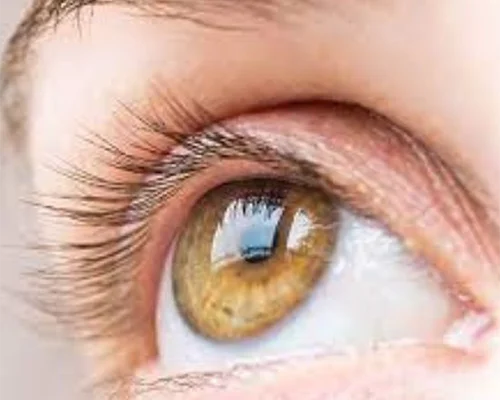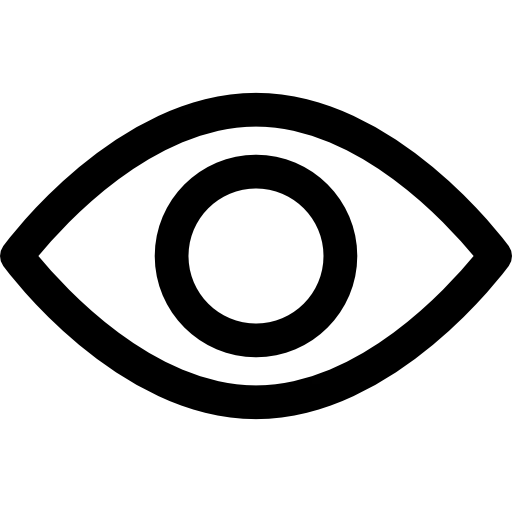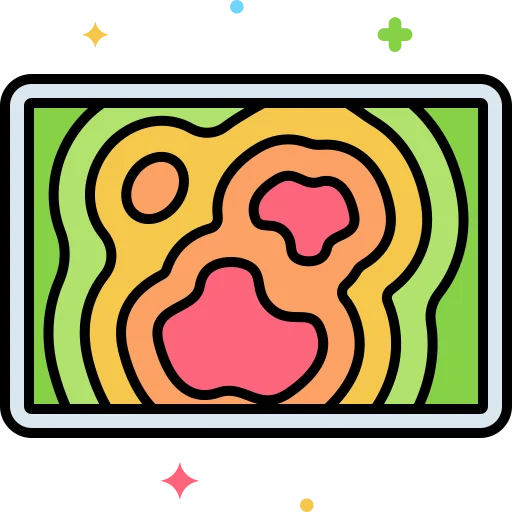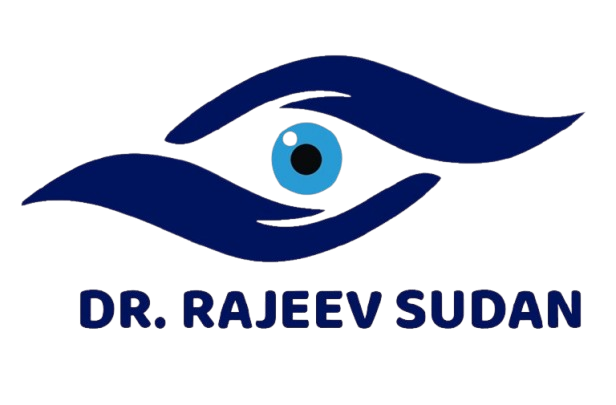Cornea
The cornea is the transparent, dome-shaped outermost layer of the eye that plays a crucial role in vision. It covers the front of the eye and contributes to over two-thirds of the eye’s focusing power. Unlike most body tissues, the cornea has no blood vessels to nourish or protect it from infection. Instead, it relies on nourishment from tears and the aqueous humor—the clear fluid in the chamber behind it.
For optimal vision, all layers of the cornea must remain clear and free from any cloudiness or opacities. When the cornea becomes cloudy due to injury, infection, disease, or malnutrition, vision can be severely impaired or lost.

Specialized Cornea Services

1. Corneal Transplantation
Dr. Rajeev Sudan offers expert corneal transplant procedures at the Cornea Clinic — a transformative solution for patients with advanced corneal damage or disease. This surgery can restore vision and significantly improve quality of life.

2. Corneal Cross-Linking
Dr. Sudan performs advanced corneal cross-linking — a specialized procedure designed to halt the progression of keratoconus and similar conditions. It helps maintain the cornea’s strength and clarity over time.

3. Corneal Infections Treatment
Dr. Rajeev Sudan provides prompt and effective care for corneal infections. Early diagnosis and treatment are critical, and his expertise ensures patients receive the right care to prevent vision loss.

4. Corneal Topography
Using state-of-the-art corneal topography technology, Dr. Sudan accurately maps the surface of the eye to guide personalized treatment plans. This precision leads to better outcomes for every patient.
Corneal blindness ranks as the fourth leading cause of vision loss in India. Thankfully, it is treatable through corneal transplantation — a procedure where a damaged or diseased cornea is replaced with a healthy donor cornea. Depending on the condition, the transplant may involve the entire cornea (penetrating keratoplasty) or only specific layers (lamellar keratoplasty).
As artificial corneas are not yet a viable option, these life-changing surgeries are only possible through eye donation.
At the Clinic, Dr. Rajeev Sudan — a highly trained cornea specialist — performs advanced corneal transplants using the latest techniques, offering new hope to patients across Delhi/NCR
Comprehensive Care for Corneal Diseases at the Cornea Clinic – Dr. Rajeev Sudan
Refractive Errors
Conditions like hyperopia (farsightedness) and astigmatism occur due to the irregular curvature or shape of the cornea. These issues lead to blurred or distorted vision. While glasses and contact lenses are common solutions, refractive surgeries are increasingly sought after for long-term correction.
Allergic Eye Conditions
Eye allergies, often triggered by pollen, dust, or contact lens use, result in itching, redness, tearing, and burning. Timely diagnosis and treatment are crucial to avoid chronic discomfort or further complications.
Conjunctivitis (Red Eye / Pink Eye)
Conjunctivitis is an inflammation of the thin membrane covering the white of the eye and inner eyelid. It can be infectious or allergic in nature and often presents with redness, discharge, and irritation. Preventive hygiene and appropriate medication are key to recovery.
Corneal Infections (Corneal Ulcers)
These occur when the cornea’s protective layer is breached, typically by bacteria, viruses, fungi, or acanthamoeba, leading to pain, redness, watering, and vision loss. At Cornea Clinic, Dr. Rajeev Sudan ensures swift diagnosis and advanced treatment protocols to preserve vision.
Dry Eye Syndrome
Dry eye can result from inadequate tear production, lipid or mucin deficiency, eyelid dysfunction, or corneal surface irregularities. Personalized treatment helps restore moisture balance and comfort.
Corneal Dystrophies
These inherited disorders affect corneal clarity and may lead to vision loss or recurrent pain. Dr. Rajeev Sudan is well-versed in treating these using lamellar or full-thickness keratoplasty, depending on severity.
Keratoconus
Keratoconus is a degenerative condition where the cornea thins and bulges into a cone shape. Collagen cross-linking therapy, offered at the clinic, halts its progression by strengthening the corneal structure with UVA light and riboflavin.
Pterygium
This fleshy tissue growth on the cornea is common in sunny climates due to UV exposure. Pterygium surgery is offered at Cornea Clinic using minimally invasive techniques with quick recovery.
Ocular Surface Disorders
These involve chronic inflammation, ulceration, and scarring of the eye’s surface. Conditions like Limbal Stem Cell Deficiency and keratinisation are managed using targeted therapies to restore eye health and clarity.
Contact Lens-Related Complications
Improper lens use can cause discomfort, allergic reactions, and infections. Dr. Rajeev Sudan provides expert care in managing such complications while helping patients transition safely back to corrective options.
Aphakic / Pseudophakic Bullous Keratopathy
In patients with compromised endothelial cells post-cataract surgery, early treatment can include medications, while advanced cases may require endothelial keratoplasty (DMEK/DSAEK). Dr. Sudan specializes in these delicate, sight-restoring procedures.
Corneal Transplants by Dr. Rajeev Sudan
Corneal transplantation restores vision by replacing damaged corneal tissue with healthy donor tissue. It is often required in cases of injury, scarring, infections, or hereditary disorders.
Types of Corneal Transplants:
-
Penetrating Keratoplasty (PK): Full-thickness transplant, typically done for deep corneal damage.
-
Endothelial Keratoplasty (EK): Only the inner layer (endothelium) is replaced, ideal for endothelial dysfunction.
A clear and healthy cornea is vital for proper light refraction and good vision. Transplants become necessary when glasses, lenses, or medications no longer improve vision or relieve symptoms.
Conditions Needing a Cornea Transplant:
-
Hereditary diseases (e.g., Fuchs’ Dystrophy)
-
Keratoconus and other thinning disorders
-
Corneal scarring from infections or injury
-
Chemical burns
-
Post-LASIK complications
-
Excessive corneal swelling (edema)
-
Graft failure or rejection
Recovery After a Corneal Transplant
Recovery can span several months. Vision may initially worsen before gradually improving. Protective glasses, eye drops, and regular follow-ups are crucial. Stitches, if used, are often removed 6–12 months post-surgery.
Advanced Techniques at Cornea Clinic
🔹 Deep Anterior Lamellar Keratoplasty (DALK)
This technique replaces only the front layers of the cornea, preserving the endothelium, thus minimizing rejection risk. Femtosecond laser-assisted DALK ensures unmatched precision and recovery outcomes. It is ideal for treating keratoconus, post-LASIK ectasia, and PMCD.
🔹 Descemet’s Stripping Endothelial Keratoplasty (DSEK/DMEK)
DSEK/DMEK involves selectively replacing the damaged endothelial layer, used in conditions like Fuchs’ Dystrophy, bullous keratopathy, and CHED. These modern procedures offer faster recovery and improved visual results.
👨⚕️ Dr. Rajeev Sudan – Your Expert in Corneal Care
With advanced training and years of experience, Dr. Rajeev Sudan brings top-tier corneal treatments and transplant techniques to patients across Delhi/NCR, ensuring compassionate and effective care every step of the way.

About Us
Dr. Rajeev Sudan, MD (AIIMS) is a cataract, glaucoma and refractive surgeon, with experience of more than 20 years. He is a post graduate and senior resident from Dr. RP centre, AIIMS and has received a honour of best resident award for an excellence in patient care at AIIMS. He has done more than 15000 surgeries including complex cataract , refractive and glaucoma surgeries.
Quick Links
Contact
A 6, Outer Ring Rd, near Savitri Flyover, Block A, Chittaranjan Park, New Delhi, Delhi 110019
rrsudan20@gmail.com
+91- 9958952302